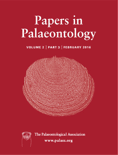
Papers in Palaeontology
Scope & Guideline
Pioneering Insights into Evolutionary Narratives
Introduction
Aims and Scopes
- Diversity of Extinct Fauna:
Exploration of the diversity and evolutionary relationships among extinct organisms, including invertebrates, vertebrates, and plants, with a focus on taxonomic revisions and descriptions of new species. - Palaeoecology and Environmental Reconstruction:
Investigating past environments and ecological interactions through the analysis of fossil assemblages, sedimentology, and taphonomy, providing insights into ancient ecosystems. - Morphological and Functional Studies:
Detailed morphological analyses of fossils to understand functional adaptations and evolutionary trends, often using advanced imaging techniques such as micro-CT scanning. - Biostratigraphy and Chronostratigraphy:
Research focused on the stratigraphic distribution of fossils to understand geological time scales and ecological shifts across different eras. - Phylogenetic and Evolutionary Patterns:
Examination of phylogenetic relationships among taxa, contributing to the understanding of evolutionary processes and patterns over geological time.
Trending and Emerging
- Integrative Approaches to Palaeobiology:
There is a growing trend towards integrating various methodologies, including molecular data, isotopic analysis, and advanced imaging techniques, to provide a comprehensive understanding of ancient life. - Focus on Palaeoecological Dynamics:
An increasing number of studies are emphasizing palaeoecological dynamics, exploring how ancient organisms interacted with their environments and the implications of these interactions for evolutionary trends. - Technological Advances in Fossil Analysis:
The application of new technologies, such as machine learning and 3D reconstruction, is becoming more prevalent, allowing for more sophisticated analyses of fossil morphology and ecology. - Exploration of Underrepresented Faunas:
Research is expanding into underrepresented groups and regions, leading to new discoveries and insights, particularly in lesser-studied fossil assemblages from diverse geographical locations. - Interdisciplinary Collaborations:
There is a marked increase in interdisciplinary collaborations, bringing together palaeontologists, ecologists, and geologists to tackle complex questions about Earth's history.
Declining or Waning
- Traditional Morphological Taxonomy:
Research strictly focused on traditional morphological taxonomy has diminished as integrative approaches that combine molecular data and advanced imaging techniques gain prominence. - Extinction Events without Ecological Context:
Studies that report on extinction events without detailed ecological implications or contextual analysis have become less common, indicating a shift towards more holistic approaches in palaeontological research. - Single-Species Studies:
There is a noticeable decrease in publications centered solely on individual species descriptions, as the field increasingly values studies that address broader ecological and evolutionary questions. - Palaeobotanical Studies Limited to Leaf Morphology:
Palaeobotanical research that focuses exclusively on leaf morphology has waned, with a shift towards studies that incorporate molecular phylogenetics or ecological modeling. - Regional Studies with Limited Global Context:
Research that focuses on specific localities without placing findings in a broader, global context has seen a decline, reflecting a trend towards more comparative and integrative analyses.
Similar Journals
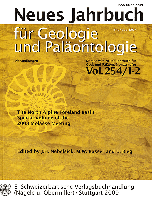
NEUES JAHRBUCH FUR GEOLOGIE UND PALAONTOLOGIE-ABHANDLUNGEN
Advancing Knowledge in Geology and PaleontologyNEUES JAHRBUCH FUR GEOLOGIE UND PALAONTOLOGIE-ABHANDLUNGEN, published by E SCHWEIZERBARTSCHE VERLAGSBUCHHANDLUNG, is a distinguished scholarly journal based in Germany that has made significant contributions to the field of Earth and Planetary Sciences with a particular emphasis on Paleontology. With its ISSN: 0077-7749, this journal provides an essential platform for researchers, professionals, and students to explore cutting-edge research and developments that enhance our understanding of geological and paleontological processes. Boasting a robust ranking of #67 out of 113 in Scopus for the category of Earth and Planetary Sciences and achieving a Q3 quartile ranking in Paleontology, it stands as a significant resource in the global academic community. Though not an open-access journal, it offers valuable insights from 1987 onwards, ensuring a comprehensive archive of high-quality research articles published from 1995 to 2024. Its scholarly impact continues to resonate, making it a vital reference point for advancements in the ever-evolving disciplines of geology and paleontology.
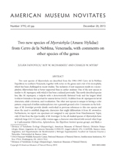
AMERICAN MUSEUM NOVITATES
Pioneering Research at the Intersection of Science and Culture.AMERICAN MUSEUM NOVITATES, published by the American Museum of Natural History, stands as a prestigious platform for scholarly dissemination in the fields of Archeology, History, and Museology. With an impressive impact factor evidenced by its Q1 rankings in 2023 across these categories, this journal is a vital resource for researchers and professionals seeking to advance knowledge and understanding within these disciplines. The journal's commitment to quality research is reflected in its high rankings within Scopus, where it boasts a remarkable rank of #37 in History and #4 in Museology, showcasing its relevance and influence in the academic community. While open access options are not currently available, readers can access compelling research articles that span from its inception in 2005 to the present date, making it an essential reference for those interested in the historical and cultural implications of natural history and museum studies. Located in the heart of New York, this journal fosters a collaboration between scientists and scholars, enriching both academic and public understanding of our shared heritage.
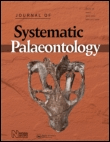
JOURNAL OF SYSTEMATIC PALAEONTOLOGY
Decoding Earth's History, One Fossil at a TimeJOURNAL OF SYSTEMATIC PALAEONTOLOGY, published by Taylor & Francis Ltd in the United Kingdom, stands as a premier platform for advancing the discipline of palaeontology. With an ISSN of 1477-2019 and an E-ISSN of 1478-0941, this journal has achieved an impressive ranking of Q1 within its category for the 2023 Scopus metrics, underscoring its significance in the field. Currently ranked #10 out of 113 in Earth and Planetary Sciences – Paleontology with a remarkable 91st percentile, it serves as an essential resource for researchers, professionals, and students alike. The journal aims to publish cutting-edge research that fosters a deeper understanding of systematic palaeontology, including the evolutionary relationships and biodiversity of extinct organisms. While it operates under a traditional access model, the Journal’s expansive reach from its inception in 2003 through to 2024 ensures it continues to play a vital role in shaping the future of palaeontological studies.
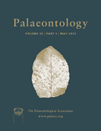
PALAEONTOLOGY
Illuminating Evolution Through the Lens of PaleontologyPALAEONTOLOGY, published by Wiley in the United Kingdom, is a leading journal dedicated to advancing the knowledge of Earth's biological history through the study of fossilized remains. With an ISSN of 0031-0239 and an E-ISSN of 1475-4983, this journal has established itself as a premier resource in the field, boasting a remarkable Q1 ranking in both Paleontology and Ecology, Evolution, Behavior and Systematics according to the 2023 category quartiles. Its commitment to high-quality research is evidenced by its Scopus rankings, placing it in the 93rd percentile among paleontology journals. While PALAEONTOLOGY is not currently open access, its extensive archival reach from 1979 to 2024 ensures that vital research findings remain accessible to the academic community. This journal not only acts as a platform for cutting-edge research but also fosters collaboration among scientists, students, and professionals interested in the implications of paleontological studies on contemporary ecological and evolutionary issues.

PalZ
Unlocking the Mysteries of Evolutionary ChangePalZ is a prestigious academic journal in the field of Paleontology, published by Springer Heidelberg in Germany. With a long-standing history that traces back to its converged years from 1914 to 2024, this journal offers invaluable insights into the evolutionary dynamics and ecological relationships of past life forms. Holding a commendable impact factor and ranked in the Q2 category of Paleontology, it consistently showcases high-quality research that resonates within the scientific community, evidenced by its Scopus rank of #38 out of 113 in Earth and Planetary Sciences. PalZ is committed to open access, ensuring that its rich repository of scholarly articles is readily accessible for researchers, professionals, and students alike. By engaging with the journal, readers will encounter cutting-edge studies that are pivotal for advancing our understanding of paleobiology and the historical patterns of biodiversity.
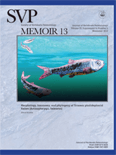
JOURNAL OF VERTEBRATE PALEONTOLOGY
Advancing Knowledge in Vertebrate PaleontologyJOURNAL OF VERTEBRATE PALEONTOLOGY, published by Taylor & Francis Inc, is a premier academic journal dedicated to advancing the field of vertebrate paleontology. With a strong emphasis on both traditional and innovative research methods, this journal provides a platform for the dissemination of influential studies and discoveries that shape our understanding of vertebrate evolution and their ecological contexts. Operating under an ISSN of 0272-4634 and an E-ISSN of 1937-2809, it covers research published since 1981 and aims to foster a collaborative environment for researchers, professionals, and students alike. The journal is currently ranked in the Q2 category of Paleontology, standing at position #45 among 113 in its Scopus category, which underscores its significant contribution to the academic community. As a crucial resource for scholars, JOURNAL OF VERTEBRATE PALEONTOLOGY provides insights that not only enrich academic discourse but also stimulate further research and exploration in a field that bridges biology, geology, and conservation.
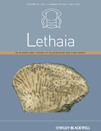
LETHAIA
Advancing the Frontiers of Paleontological ResearchLETHAIA, an esteemed journal published by Scandinavian University Press - Universitetsforlaget AS, serves as a vital platform for the dissemination of innovative research in the fields of paleontology as well as ecology, evolution, behavior, and systematics. Established in 1968 and continuing its impactful journey until 2024, LETHAIA has consistently contributed to advancing scientific understanding of Earth's biological and geological history. With a 2023 impact factor placing it in the Q2 category for both Paleontology and Ecology, Evolution, Behavior and Systematics, the journal is recognized for its high-quality, peer-reviewed articles that engage and challenge the academic community. Researchers, professionals, and students alike will find LETHAIA to be an indispensable resource for the latest findings, methodologies, and theoretical advancements in these interlinked disciplines.

BOLLETTINO DELLA SOCIETA PALEONTOLOGICA ITALIANA
Connecting Generations through Paleontological ResearchBOLLETTINO DELLA SOCIETA PALEONTOLOGICA ITALIANA is a prestigious journal dedicated to the field of paleontology, published by the SOCIETA PALEONTOLOGICA ITALIANA. Established in 1979, this journal has played a pivotal role in disseminating significant research findings and scholarly articles that enhance our understanding of Earth's biological history. With a proud history of publication stretching from 1979 to 2024, the journal maintains a strong reputation, currently holding a Q2 ranking in Paleontology, reflecting its influence and caliber within the scientific community. Additionally, it is ranked #49 out of 113 in the Earth and Planetary Sciences category by Scopus, placing it in the 57th percentile of its field. While not an open-access journal, it provides critical insights and findings valuable to researchers, professionals, and students alike, fostering a deeper appreciation for paleontological studies. Located in Modena, Italy, the journal continues to be a key resource for advancing knowledge in paleontology, making it an essential read for anyone committed to this fascinating scientific discipline.

Swiss Journal of Palaeontology
Pioneering Research in Paleontological SciencesSwiss Journal of Palaeontology, published by SPRINGER INT PUBL AG, stands as a leading platform for innovative research within the field of paleontology, contributing significantly to the understanding of Earth's historical life forms and their evolutionary pathways. With its ISSN 1664-2376 and E-ISSN 1664-2384, this journal has established a strong presence in academic circles, recognized as a Q1 journal in the category of Paleontology for 2023. Moreover, it ranks 20th out of 113 in the Earth and Planetary Sciences, securing an impressive 82nd percentile on Scopus, underscoring its influence and reach in the scientific community. The journal publishes cutting-edge research findings, theoretical advancements, and comprehensive reviews that span the globe, making it an essential resource for researchers, professionals, and students in the paleontological sciences. For those interested in contributing to and learning from the latest discoveries, the Swiss Journal of Palaeontology promises to be an invaluable addition to your academic library.
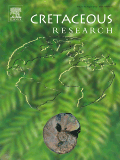
CRETACEOUS RESEARCH
Advancing Knowledge of Prehistoric LifeCRETACEOUS RESEARCH, published by Academic Press Ltd - Elsevier Science Ltd, is a leading journal in the field of Paleontology that has established itself as an essential resource for researchers and professionals delving into the rich tapestry of the Cretaceous period. With its ISSN 0195-6671 and E-ISSN 1095-998X, this journal boasts a prestigious placement in the academic landscape, holding a Q1 rank in the 2023 Paleontology category and proudly positioned at 21st out of 113 in the Scopus ranking, reflecting its impact factor that places it in the 81st percentile. Since its inception in 1980, CRETACEOUS RESEARCH has facilitated a deeper understanding of prehistoric life and its evolutionary processes, covering topics such as fossil discoveries, paleoecology, and biostratigraphy. This journal best serves those seeking to expand their knowledge and contribute innovative findings to the scientific discourse surrounding the Cretaceous era. As it continues to converge into the future until 2025, it remains dedicated to providing an open platform for the dissemination of high-quality research that shapes our understanding of Earth’s geological past.